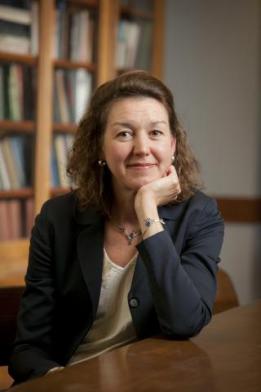Faculty Enrichment Lecture: Dr. Laura F. Edwards, "Only the Clothes on Her Back: Women, Textiles, and State Formation in the Nineteenth Century United States"

Faculty Enrichment Lectures
Presents
Dr. Laura F. Edwards
Duke University
"Only the Clothes on Her Back: Women Textiles, and State Formation in the 19th Century"
September 17, 2018 at noon
The lecture will be held in the Faculty Lounge on the 4th floor of UNLV's RLL Building
Parking information will be sent the day before the event.
https://www.unlv.edu/maps/mcb
Please register using the form below

Dr. Laura F. Edwards received her Ph.D. from the University of North Carolina, Chapel Hill and is now the Peabody Family Professor of History at Duke University. She works on the nineteenth-century United States with a focus on law, gender, and race. Her most recent book A Legal History of the Civil War and Reconstruction: A Nation of Rights was published by Cambridge University Press. Her previous book, The People and Their Peace: Legal Culture and the Transformation of Inequality in the Post-Revolutionary South was recognized by the American Historical Association with the Littleton-Griswold book prize and the Southern Historical Association with Charles Sydnor book prize. She has been awarded fellowships from the Newberry Library, the National Humanities Center, the NEH, and the John Simon Guggenheim Foundation.
She will be presenting on her most recent book project, Only the Clothes on Her Back: Women, Textiles, and State Formation in the Nineteenth Century United States. The current historiography tends to frame analyses of state formation issues in terms of the property that white men could own: land, slaves, and other forms of capital. For most Americans, however, those forms of property were completely out of reach. If they could claim anything at all, it was clothing or cloth. More than just necessities, such items held considerable value and served as currency, collateral, and a means to store and accumulate wealth. Textiles, moreover, acquired those economic meanings because they had distinctive legal qualities: people who could not own anything legally in their own names according to the laws of the state could still legally control cloth and clothing. Textiles thus shift the analytical frame from property that the minority owned to property that the majority possessed, a shift that reveals a very different history of Americans’ relationship to the law, a very different conception of the state, and a very different frame for understanding U.S. history more generally.
Please join us in welcoming Dr. Laura F. Edwards to the Boyd School of Law for her Faculty Enrichment lecture, "Only the Clothes on Her Back: Women, Textiles, and State Formation in the Nineteenth Century United States," on September 17, 2018